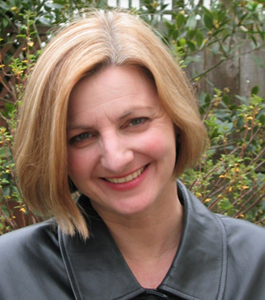Preparing tomorrow's autism educators
April 21, 2008 -- Associate Professor of Special Education Pamela Wolfberg has to keep amending the poster displayed on her office door. The poster shows the incidence of children identified with autism spectrum disorder, a figure which has risen from one in 10,000 children in 1998 to one in every 150 at the present time.
As the number of diagnoses creeps up, the supply of qualified educators isn't keeping pace. "There is a lack of qualified teachers who are fully credentialed and competent to serve students with autism," said Wolfberg. There is also a shortage of teachers from diverse backgrounds and those trained to work in ethnically, culturally and linguistically diverse communities. "Bay Area schools are a classic example of these settings," she said.
Autism spectrum disorder (ASD) includes classic autism, Asperger syndrome and other developmental disorders. Children with ASD encounter problems with social interaction and communication and often miss out on peer play experiences which are a vital part of childhood.

Pamela Wolfberg, associate professor of special education
Project Mosaic, SF State's autism spectrum program, is preparing teachers and professionals to work with diverse children on the autism spectrum. Established in 2006, the program is a dream come true for Professor Wolfberg. "Ever since I joined the faculty at SF State my intention was to start an autism program," said Wolfberg.
She started Project Mosaic with a U.S. Department of Education grant of $800,000, a portion of which supports 20 student stipends each year, enabling the program to attract dedicated educators regardless of their economic background.
"Students accept the funding on the condition that they will work with autistic children for at least two years after they graduate," said Wolfberg. "This means we will be staying in touch with our graduates once they complete the course. As they put theory into practice in the classroom their experiences will feed directly into our ongoing autism research."
Wolfberg is internationally known for her research on peer relations, play and social inclusion. She is best known for devising the Integrated Play Groups model, an empirically-based model where autistic children play together with typical peers, guided in activities that encourage social interaction and imagination. Integrated Play Groups help the peer group to accept children who are different from themselves.
"A theme that runs through my research and Project Mosaic is helping people approach autism as a difference rather than a disability," said Wolfberg.
Project Mosaic students graduate with three qualifications: a master's degree in special education, level two of a special education teaching credential, and an autism spectrum graduate certificate. But starting in fall 2008, professionals may enroll in only the graduate certificate, an option designed for people from such fields as nursing, psychology and social work who already have a master's degree in another subject.
Pamela Wolfberg will be giving a free public lecture titled "Autism today and its impact in the classroom" on campus on April 24. Find out more at: http://www.sfsu.edu/~coe/alumni/AutismFlyer.pdf (PDF requires Adobe Reader).
To find out more about Project Mosaic, visit the Autism Spectrum Program Web site.
-- Elaine Bible
Share this story:
